Prospective Graduate Student Virtual Open House
The Department of Arabic and Islamic Studies invites you to participate in our Prospective Graduate Student Virtual Open House.
When: Thursday, November 12, 2020, 11:00 AM
Where: Via Zoom
PROGRAM
11:00 AM – 11:10 AM Opening Remarks
Dr. Suzanne Stetkevych, Department Chair
11:10 AM – 11:25 AM Graduate Program Overview
Dr. Felicitas Opwis, Director of Graduate Studies
11:25 AM – 11:45 AM Breakout Session: Conversation with Faculty Members by Concentration (Arabic Linguistics, Arabic Literature, Islamic Studies)
**At 11:25 AM, students will be placed in the breakout room that corresponds to their concentration selection from their RSVP response.**
11:45 AM – 12:00 PM Conversation with Current Students
**At 11:45 AM, students will rejoin the main session for the conversation with current students**
For Department Application Procedures: click here .
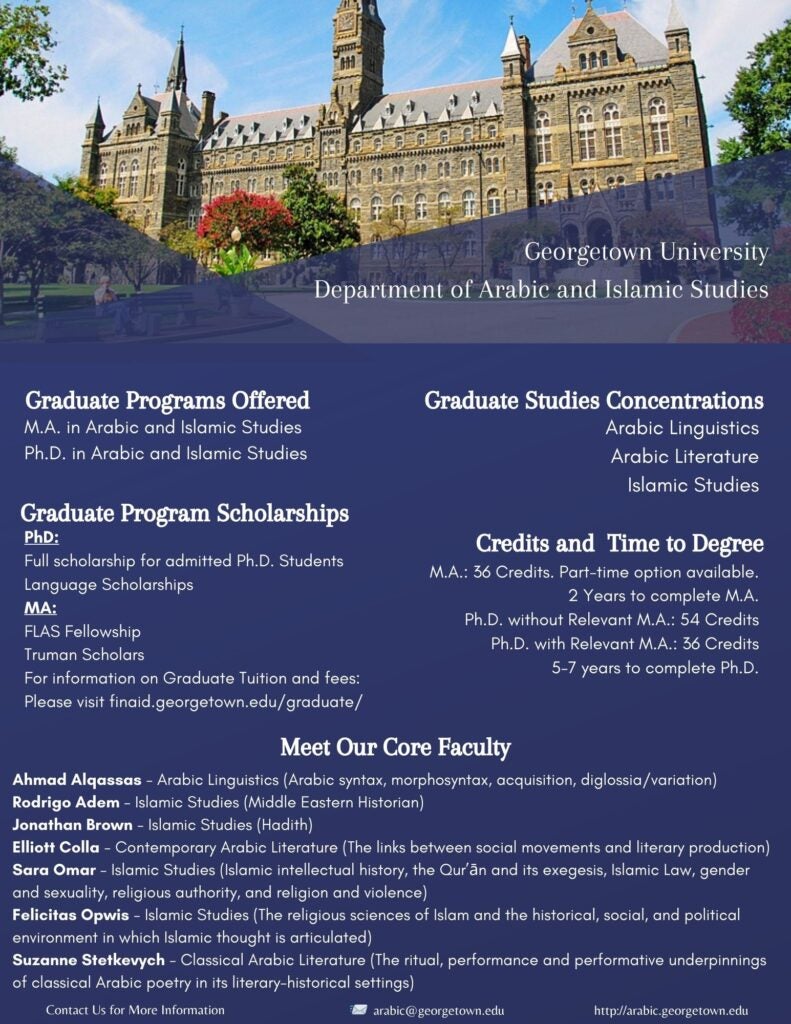
Get to Know Our Core Faculty:
Arabic Linguistics
Dr. Ahmad Alqassas (aa1453@georgetown.edu)
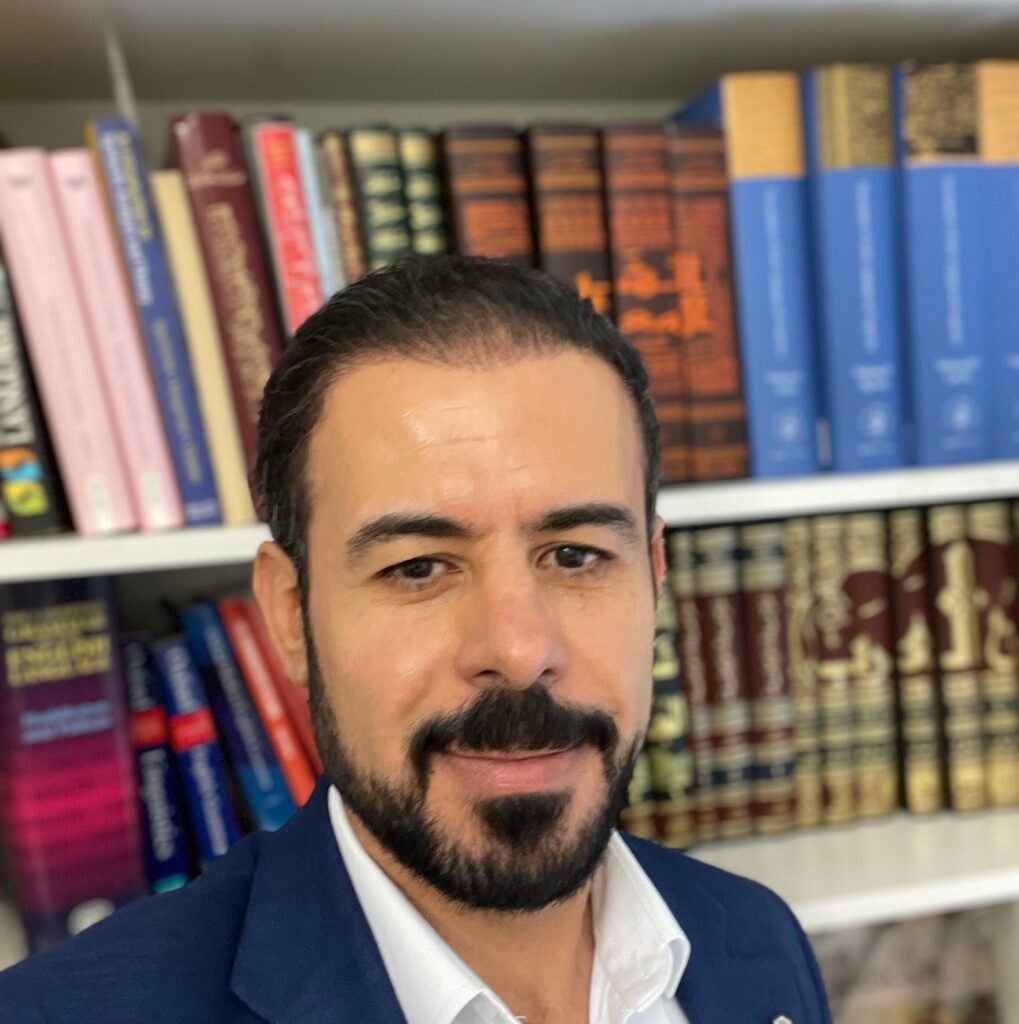
Interests: Arabic syntax, morphosyntax, acquisition, diglossia/variation
Ahmad Alqassas (Ph.D., Linguistics, Indiana University-Bloomington) is a linguist with research interests in linguistic theory and comparative syntax, Arabic syntax, morphosyntax, acquisition and diglossia/variation. Drawing on comparative data from dialectal and standard Arabic, and other languages, his research investigates the universal principles and subconscious computations behind the perennial linguistic landscape shaped by the mental faculty of human language. His research primarily investigates clausal architecture and structural dependencies in the major grammatical categories, including negation, tense/ mood/ aspect, polarity sensitivity, and coordination structures. His book publications include A Unified Theory of Polarity Sensitivity: Comparative Syntax of Arabic (Oxford University Press, forthcoming 2021); and A Multi-locus Analysis of Arabic Negation: Micro-variation in Southern Levantine, Gulf and Standard Arabic (Edinburgh University Press, 2019). His research investigates key issues in linguistic theory, particularly within Minimalist Syntax, such as the role of linguistic parameters and interface effects in explaining the rich linguistic variation. His research includes the morphosyntax of agreement morphology in the nominal domain, such as numeral phrases and definiteness, and their role at the syntax-morphology interface within Distributed Morphology. His interests include the applications of linguistic theory to second/heritage language acquisition. He also teaches courses on Arabic linguistic analysis, linguistics methodology, dialectology, sociolinguistics, language policies/politics and political discourse.
Arabic Literature
Dr. Elliott Colla (ec393@georgetown.edu)

Interests: The links between social movements and literary production
Elliott Colla is associate professor of Arabic and Islamic Studies at Georgetown University. He is author of Conflicted Antiquities: Egyptology, Egyptomania, Egyptian Modernity, and essays on modern Arab literature, culture and politics. He has translated works of contemporary Arabic literature, including Ibrahim Aslan’s novel, The Heron, Idris Ali’s Poor, Ibrahim al-Koni’s Gold Dust, and Rab‘i al-Madhoun’s The Lady from Tel Aviv.
Dr. Suzanne Stetkevych (ss3179@georgetown.edu)
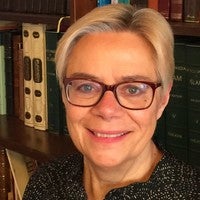
Interests: The ritual, performance and performative underpinnings of classical Arabic poetry in its literary-historical settings
A specialist in Classical Arabic Poetry, Suzanne Pinckney Stetkevych has published extensively in English and Arabic. Her research is primarily concerned with the ritual, performance and performative underpinnings of classical Arabic poetry in its literary-historical settings. In studies ranging from the pre-Islamic tribal and royal ode of the Jahiliyya, to the court praise odes of the Islamic caliphate, the devotional poetry of the Medieval Period and the Neo-Classical ode of the Nahdah and Colonial period, she engages ritual theory, rite of passage, gift exchange and sacrificial rituals to reveal the socio-economic role of the qasida, the ceremonial aspects of qasida performance as a courtly negotiation of status and legitimacy, and the spiritually and politically transformative role of madih nabawi (praise poems to the Prophet Mohammad). Her courses include Poetry and Empire: the Arabic Ode; Poetry as Performance; Pre-Islamic Poetry: Orality, Ritual and Performance; Theoretical Approaches to the Arabic Ode; Modern Arabic Poetry; and Classical Arabic Literary Texts. She is currently working on a project on the transformation of Arabic poetics and aesthetics from Classical to Post-Classical the two poetry diwans of the celebrated blind Syrian poet, Abu al-‘Ala’ al-Ma‘arri (d. 1058 CE).
Islamic Studies
Dr. Rodrigo Adem (ra1038@georgetown.edu)
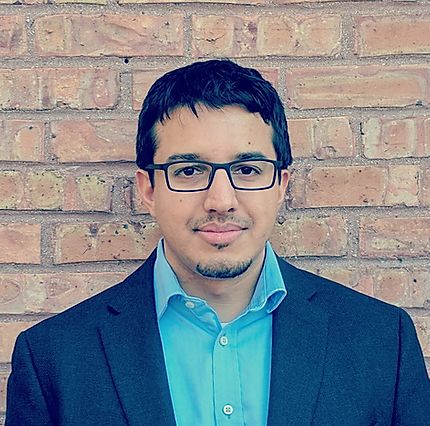
Interests: the urban development of medieval Syria (and Damascus in particular) as entry point for the distinctive features of the medieval Middle Eastern city as archive of literary and material culture, site for the formation of regional, ethnic, and religious identities, and center for standardization of knowledge production and dissemination of norms and tastes.
Rodrigo Adem (Ph.D., Near Eastern Languages and Civilizations, The University of Chicago) is a historian of the premodern Middle East. As an intellectual historian, his research encompasses early Islamic thought in its diverse doctrinal manifestations and regional forms, and is dedicated to an intimate engagement with the textual sources of “classical Islam,” with an emphasis on epistemology, hermeneutics, historiography, and the construction of scholarly authority. His current book project, tentatively titled Necessary Proof, examines scholarly dissatisfaction with traditional authority as a religious sensibility unique to early Islamic thought, and explains the historical significance of the same in conversation with the history of philosophy, critical theory, and the sociology of knowledge. His courses include: Introduction to Islamic Civilization; Knowledge, Desire, and Power in Classical Islamic Thought; Advanced Readings in Classical Arabic & Islamic Thought; and Readings in Arabo-Islamic Historiography.
Dr. Jonathan Brown (brownj2@georgetown.edu)
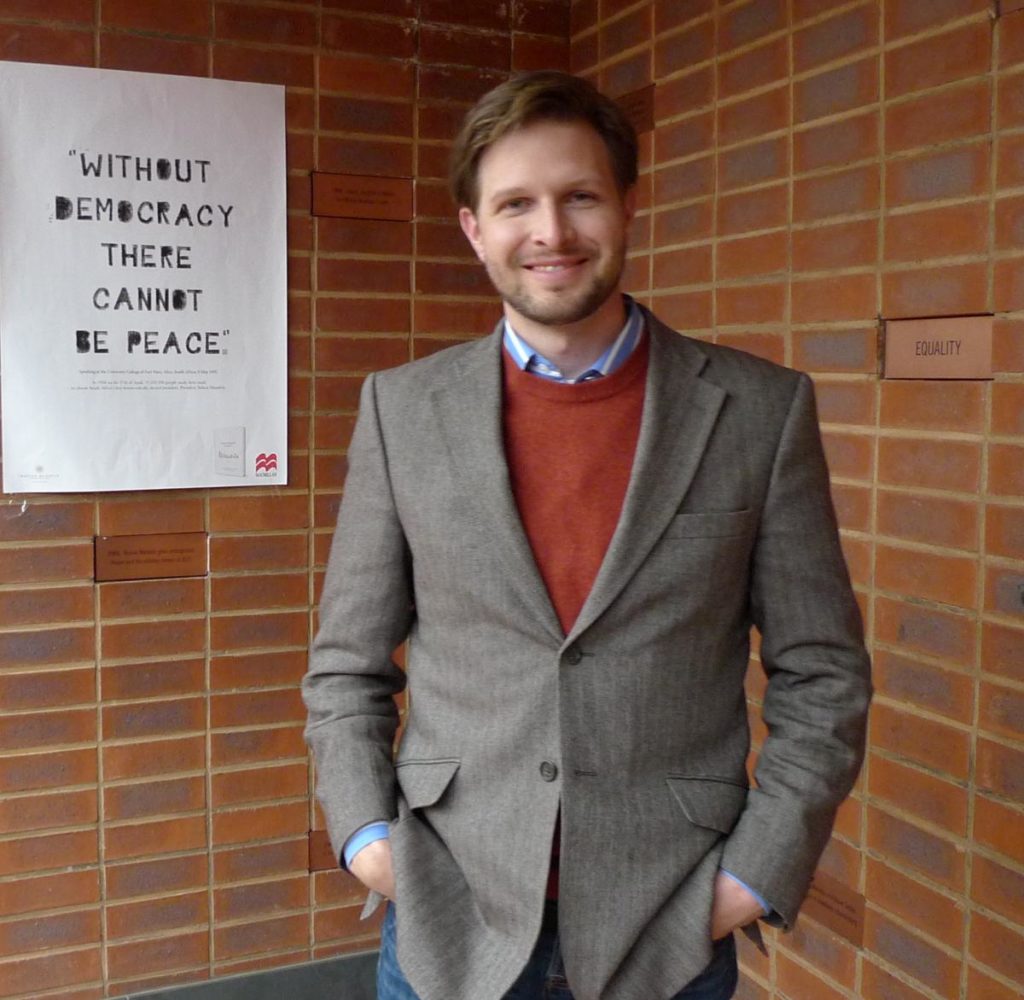
Jonathan Brown is the Alwaleed bin Talal Chair of Islamic Civilization in the School of Foreign Service at Georgetown University, and he is the Director of the Alwaleed bin Talal Center for Muslim Christian Understanding. He received his BA in History from Georgetown University in 2000 and his doctorate in Near Eastern Languages and Civilizations from the University of Chicago in 2006. Dr. Brown has studied and conducted research in countries such as Egypt, Syria, Turkey, Morocco, Saudi Arabia, Yemen, South Africa, India, Indonesia and Iran. His book publications include The Canonization of al-Bukhari and Muslim: The Formation and Function of the Sunni Hadith Canon (Brill, 2007); Hadith: Muhammad’s Legacy in the Medieval and Modern World (Oneworld, 2009; expanded edition 2017); Muhammad: A Very Short Introduction (Oxford University Press, 2011), which was selected for the National Endowment for the Humanities’ Bridging Cultures Muslim Journeys Bookshelf; Misquoting Muhammad: The Challenges and Choices of Interpreting the Prophet’s Legacy(Oneworld, 2014), which was named one of the top books on religion in 2014 by the Independent; and Slavery and Islam (Oneworld, forthcoming 2019). He has published articles in the fields of Hadith, Islamic law, Salafism, Sufism, Arabic lexical theory and Pre-Islamic poetry and is the editor in chief of the Oxford Encyclopedia of Islam and Law. Dr. Brown’s current research interests include Islamic legal reform and a translation of Sahih al-Bukhari. He is also the Director of Research at the Yaqeen Institute.
Dr. Sara Omar (smo52@georgetown.edu)
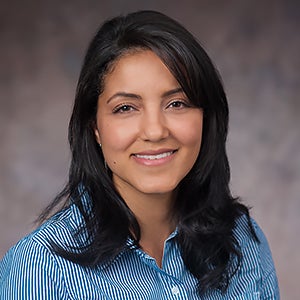
Interests: Islamic intellectual history, the Qur’ān and its exegesis, Islamic Law, gender and sexuality, religious authority, and religion and violence.
Sara Omar received her PhD from the Department of Near Eastern Languages and Civilizations at Harvard University. She recently completed a Postdoctoral Fellowship in Middle East Studies at the MacMillan Center at Yale University. She has received a number of fellowships including a Fullbright Fellowship in Syria where she conducted field work on female religious authority in Damascus. Her work traces the legal and social genealogies governing words, concepts, and the practices that they encode. Much of her research explores the logic, contexts, and hierarchies that have shaped discourses of nomativity over the first eight centuries of Islamic history, particularly as they relate to gendered patterns of power. Her current book project focuses on the genealogy of same-sex sexual practices in the formation of Muslim discourses. This monograph underscores insights that can be gained from studying same-sex sexual practices as a means of understanding the legal, ethical, and social genealogies that have authorized various practices and beliefs as authentically Islamic while also disqualifying and silencing others.
Dr. Felicitas Opwis (fmo2@georgetown.edu)
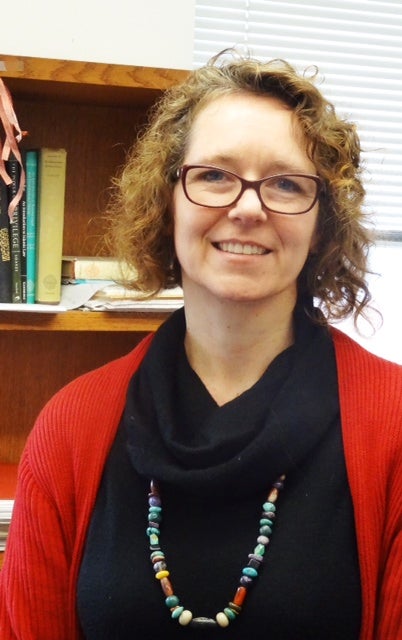
Interests: The religious sciences of Islam and the historical, social, and political environment in which Islamic thought is articulated.
In her scholarly inquiries Felicitas Opwis addresses the religious sciences of Islam and the historical, social, and political environment in which Islamic thought is articulated. Her main research field focuses on Islamic jurisprudence, and in particular how the formulation of Islamic legal theory is related to intellectual discourse in other fields of Muslim learning, and to the political and social environment. She investigates how Islamic jurisprudents tackle the perpetual dilemma of achieving legal change without changing the scriptural foundations of the law. Through close comparative analyses she looks at how and why legal principles, such as public interest and juristic preference, change over time. Felicitas Opwis has published several articles and book chapters on questions of legal change in Islamic jurisprudence. These publications deal with the construction of authority within schools of law; re-interpretation of particular legal principles; whether or not a “reformation” has occurred in Islamic law; and the development of the concept of public interest/maslaha. She is currently preparing a book manuscript on the development of the concept of maslaha in Islamic legal theory from the 10th to the 15th century.
